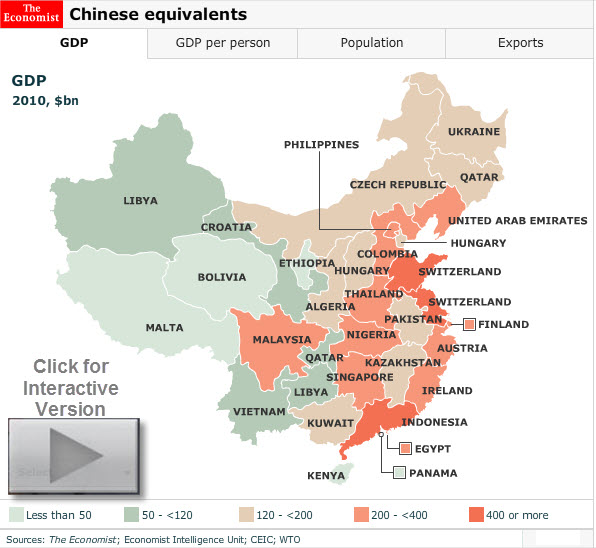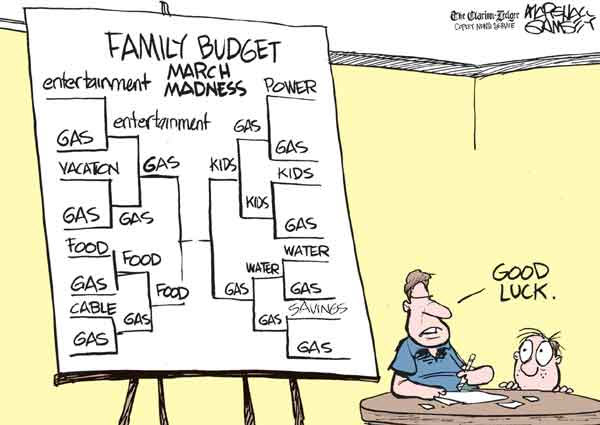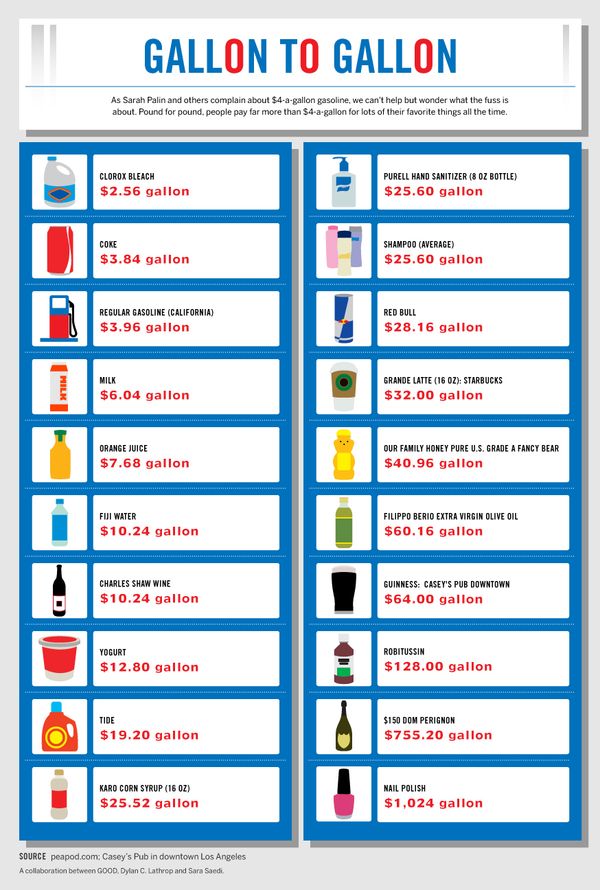China is still a toddler from an economic perspective. No doubt, It is growing quickly. What will happen as it matures?
 photo of toddler from Sun article.
photo of toddler from Sun article.
Here is an infographic from the Economist that shows which countries match the GDP, population and exports of Chinese provinces.
China is now the world’s second-biggest economy; but some of its provinces by themselves would rank fairly high in the global league.
This map shows the nearest equivalent country. For example, Guangdong's GDP (at market exchange rates) is almost as big as Indonesia's; the output of both Jiangsu and Shandong exceeds Switzerland’s.
They also produced an interactive country comparison to the US states.













